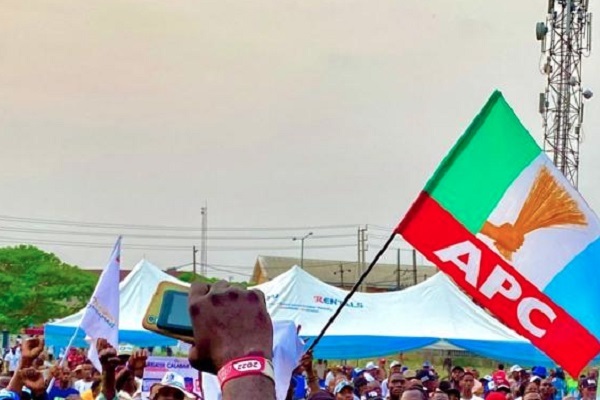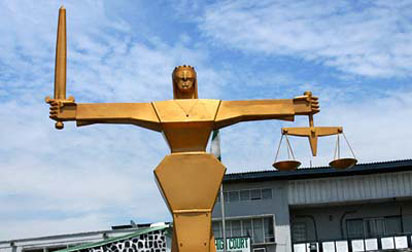By Olaniyi Adeoluwa
On Wednesday, the All Progressives Congress (APC), Nigeria’s ruling party, began what it describes as a “historic self-assessment summit” inside the prestigious Banquet Hall of the Presidential Villa, Abuja. It is the first of its kind in the party’s 11-year history — a full-scale internal performance review two years into President Bola Ahmed Tinubu’s administration.
On paper, the summit looks like a responsible act of governance. Ministers, governors, party stalwarts, and high-ranking officials — all gathered to measure promises against outcomes. With over 2,500 participants, including members of the Federal Executive Council, National Assembly leaders, and agency heads, the event suggests seriousness.
But here lies the paradox: how does a party truly audit itself behind closed doors without confronting the brutal truths that Nigerians are already shouting from rooftops? The APC has called the meeting a moment of reckoning. The nation waits to see if it will be one of redemption or denial.
A Celebration in the Midst of Suffering?
The summit comes at a time when ordinary Nigerians are battling record inflation, skyrocketing food prices, persistent insecurity, and an economic squeeze that many now call a crisis. The once-hopeful Renewed Hope Agenda that swept Tinubu into office has, in the eyes of critics, morphed into renewed hardship.
So the optics of gathering at the Presidential Villa — with lavish banners and party branding — while fuel prices soar and millions go to bed hungry, has not gone unnoticed. One might ask: should the APC be organizing a celebration or a confessional?
Indeed, President Tinubu is expected to give a rallying address, touting bold reforms and market liberalization policies. But if this summit is to carry any legitimacy, the president and his cabinet must do more than recite statistics — they must listen to the streets.
Safe Hands or Echo Chamber?
Speakers lined up include Vice President Kashim Shettima, Senate President Godswill Akpabio, Speaker Tajudeen Abbas, and key ministers such as Mohammed Idris (Information), Muhammad Ali Pate (Health), Olubunmi Tunji-Ojo (Interior), Dave Umahi (Works), and Olawale Edun (Finance). Nuhu Ribadu will speak on security, and Hadiza Bala-Usman will lead a session on policy formulation.
But how many of them will resist the temptation to whitewash reality?
Will the Finance Minister, for instance, confront the currency crisis, the loss of purchasing power, and the uneven impact of subsidy removal? Will the Minister of Works admit to the state of collapsing roads across the federation? Will anyone acknowledge that trust in public institutions is dangerously low?
These questions linger because Nigerians have seen this movie before: elite gatherings that end in communiqués filled with platitudes and promises, while actual governance deteriorates.
Who Will Speak Truth to Power?
Perhaps the most pressing concern is the absence of independent voices in this so-called performance review. Where are the civil society actors, the opposition figures, the labour unions, or community leaders who live daily with the consequences of government policy? Where are the journalists, the educators, the market women — the real assessors of governance?
If the summit is a room full of insiders appraising other insiders, then it is not a performance review. It is a performance.
One hopes the presence of figures like former Vice President Yemi Osinbajo — a professor of law and a man known for his intellectual rigor — might offer a dose of introspection. But will even he speak up?
The APC must understand that truth-telling is not disloyalty. A party that cannot critique itself cannot correct itself. And a government that insulates itself from honest feedback is setting itself up for failure.
Beyond Optics, Where Is the Courage?
The summit has the potential to be a turning point — a moment where the ruling party reorients itself, refocuses on the poor and the vulnerable, and accepts its shortcomings with humility. But that will only happen if there is courage in the room.
Courage to admit that hunger has become national, that insecurity is not yet “technically defeated,” and that some of the reforms, while well-intentioned, have brought pain without protection. Courage to say that not all ministers have performed and not all governors have delivered.
If all the APC can offer is polished speeches and party chest-thumping, then this summit will go down in history as a missed opportunity — a gathering of elites too scared to hear the cry of the people.
The Verdict Is Not in the Hall, but in the Streets
Let it be known: the real review is not happening in Abuja. It is happening in the streets of Kano, the markets of Enugu, the classrooms of Kaduna, and the farmlands of Benue. It is being carried out daily by millions of Nigerians who ask, "Has life improved under this administration?"
The APC may control the microphones today, but the people will write the final report.
And history is watching.




